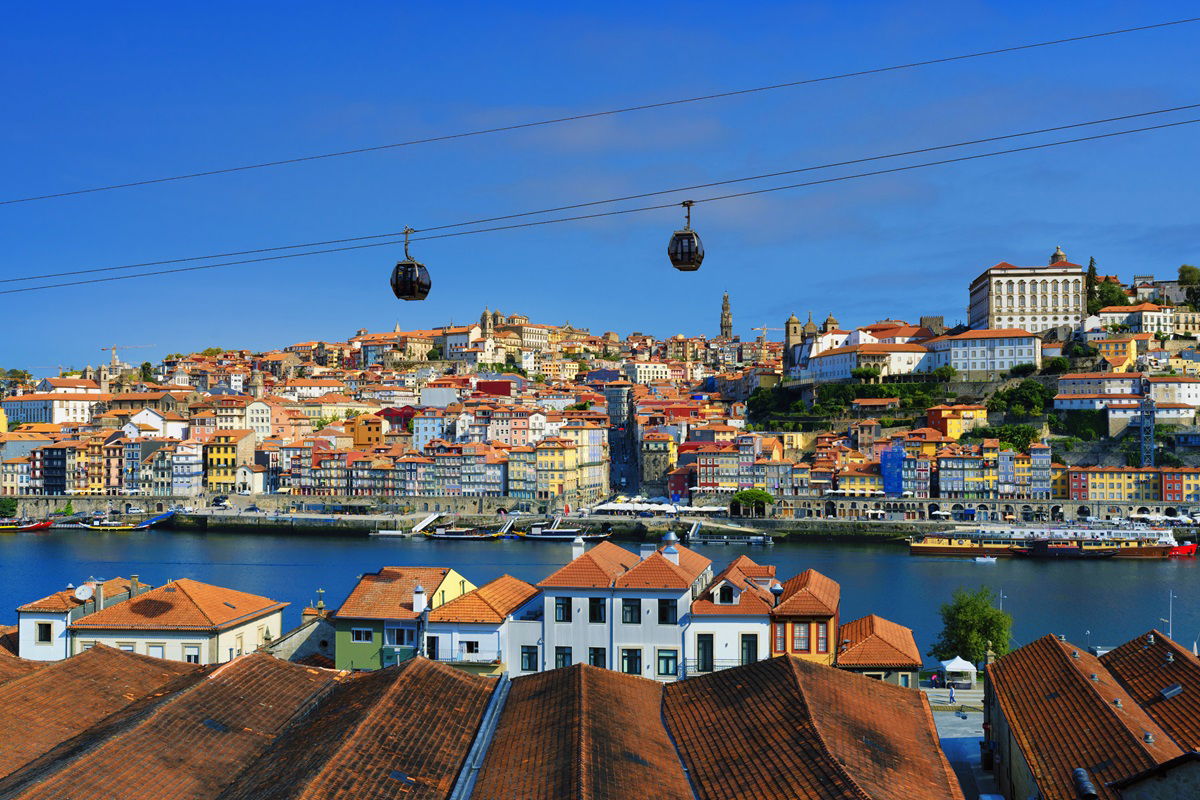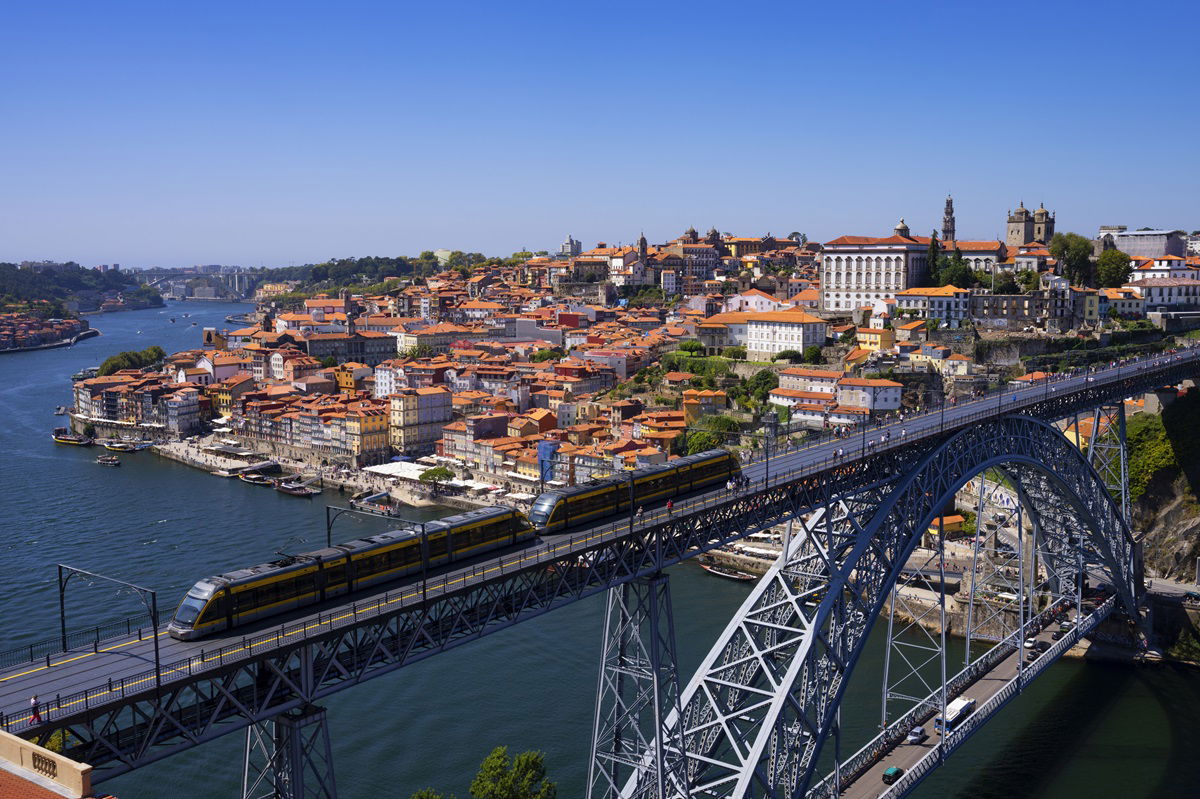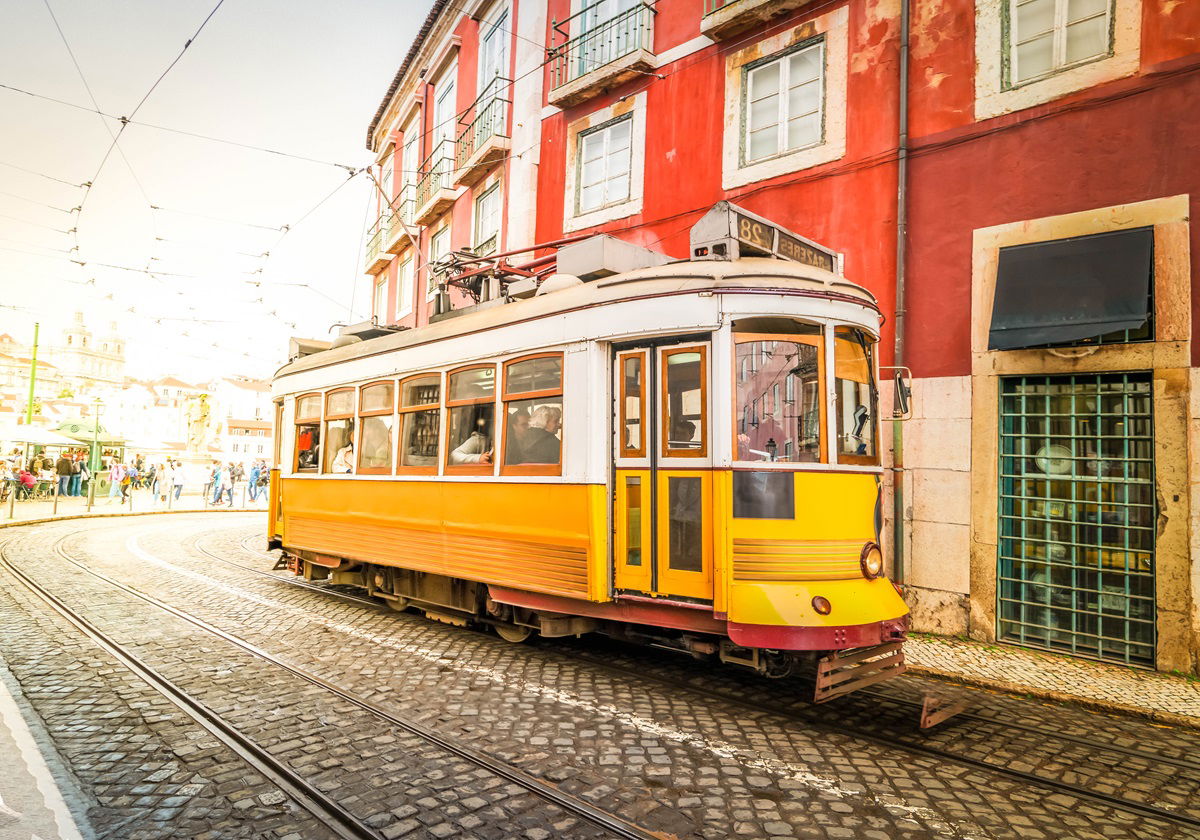
Emigrating to Portugal
Picturesque coasts, amazing beaches, a turquoise sea – Portugal fascinates with its fabulous landscape and warm temperatures. All reasons why many people would like to emigrate to Portugal. As an EU citizen, emigration within the European Union is also relatively easy. We explain why emigrating to Portugal is worthwhile and what you have to consider when making your dream of living in Portugal come true.
Reasons for emigrating to Portugal
Without a doubt, it is the warm climate that entices most people to emigrate to the south or to Portugal in particular. Many would not hesitate to swap rainy autumn days and cold winters for hot summers and mild winters. The climate in Portugal is temperate and maritime, which means that, even in winter, you can expect pleasant temperatures of between 10 and 15 degrees. The summers do not get too hot at 25 to 30 degrees.
However, many people are also attracted by the low cost of living. This is slightly lower than in Germany and even lower than in Spain. On the other hand, it should be noted that salaries are significantly lower than in Germany.
For EU citizens, another reason for to emigrate to Portugal is certainly the fact that Europeans do not need a visa to live there. They can work and live anywhere in the EU – including Portugal.
Emigrating to Portugal as an EU citizen
EU freedom of movement allows EU citizens to live and work in all EU countries, also for more than three months. However, you are not entitled to social benefits if you do not work in the respective country. You may also only stay longer in another EU country if you have a job or if your livelihood is otherwise financially secure.
If you decide to stay abroad for a longer period of time, you must register in the respective country. This means that as soon as you have an apartment in Portugal, you must register your address with the municipal administration using your passport or identity card, just as you would have to do in Germany. In Portugal, you will then receive a certificate of registration for an initial period of five years. You can then have it extended for 10 years and receive a “Cartão de Residência Permanente”.
Living in Portugal
If you want to emigrate to Portugal, there are a few things you should know about life there.
The cost of living in Portugal is slightly lower than in Germany. Rental costs are somewhat lower and the prices of food and eating out are significantly below those in Germany. Utilities, internet and public transport cost around the same.
The state health system in Portugal is called “Serviço Nacional de Saúde” and is well developed. It is available to all residents of Portugal largely free of charge. In addition, all EU citizens with a European health insurance card can also use it free of charge for up to 90 days. If you are staying in the country for a longer period of time, you will have to register your address to be able to continue taking advantage of the healthcare system.
The education system in Portugal has undergone phenomenal change. Up until 2000, Portugal hovered somewhere near the bottom in the PISA studies. After that, however, the country made huge leaps and even overtook its neighbour Spain in 2018. Portugal has worked hard on improving its education system and is now always in the solid upper midfield in PISA studies.
The “Educação Pré-escolar”, pre-school education, begins in Portugal with kindergarten. Parents can also choose to have a childminder look after their children. Between the ages of three and six, children can then attend preschool. Compulsory schooling begins with primary education. This applies from six to 18 years of age. Primary education is divided into three cycles, during which different subjects feature on the curriculum. Primary school is followed by secondary school. Here, students have to choose between the following fields: science, art, humanities or economics in general education schools or in other areas in vocational schools.
Learn more about living in Portugal in our article.







Working in Portugal
Hit hard by the economic crisis, Portugal is in a much better position today. The number of unemployed is falling and the economy is recovering. Important industries for the country are primarily tourism, but also industries such as textiles, pharmaceuticals, automobiles and food.
Skilled workers are also sought in the following professions:
- Doctors and nurses
- IT specialists
- Specialists and managers
- Hotel professionals
You can find jobs all over Europe, for example, at EURES.
As an EU citizen, you do not need a work permit to work in Portugal. All you have to do is register with the municipality or city in Portugal where you will live and work in the future. The authorities there will provide you with the required tax number, known as a NIF (Número Identificação Fiscal). To register in Portugal, you must either have a job or have sufficient financial means to support your livelihood.
In Portugal, a full-time weekly working time of 40 hours is normal. As you may already know from holidays spent there, a two-hour siesta is the norm at lunchtime. You are legally entitled to 20 days of vacation – but 22 to 25 days of vacation are common. You will only receive sick pay from the fourth day of illness – and even then you will not receive your full salary. The minimum wage in Portugal is 870 euros per month. The average income is 17,000 euros per year.
Learn more about working in Portugal in our article.
Checklist: Emigrating to Portugal
So, you are now convinced that you want to emigrate to Portugal and would like to start preparing for your great adventure? Then we have a suitable checklist for you:
- Learn Portuguese: If you do not speak Portuguese yet, you should start learning it now. Many people in the larger cities in Portugal also speak English, but English is very rarely spoken much in rural areas.
- Looking for a job: For your emigration, it is important that you find a job in Portugal. You can only register permanent residence in the country if you have a job or are financially secure. It is best to start your job search while you are still in Germany.
- Looking for accommodation: While you are still in Germany, you should also look for your first accommodation in Portugal. You can also rent an Airbnb first and then take a closer look at a permanent solution once you are there.
- Preparing to move: Have you found a job and your accommodation? Then you can prepare for your move. You can hire a company to handle your move, or you can rent a van and organise everything yourself.
- Deregister your residence in Germany: If you are permanently emigrating to another country, you must deregister your residence in Germany.
- Registering in Portugal: Register with the municipality or city where you will live in the future no later than 30 days after your arrival. The authorities there will also give you a registration certificate for five years. You can extend this for another ten years after it expires.
- Register your driving licence: In principle, you are also allowed to drive in Portugal with your EU driving licence. Once you register your residence in Portugal, you must register with the driving licence office, the IMT (Instituto da Mobilidade e dos Transportes), within 60 days. This is only the registration of your foreign driving licence and not a conversion.
- Re-registering your vehicle: If you have driven your car to Portugal, you must re-register it and get a Portuguese licence plate.
- Apply for a tax number: You will need an NIF (Número Identificação Fiscal) tax number in Portugal for many everyday things, such as opening a bank account, electricity contracts, etc. To apply for it, you will need a valid identity document and proof of address. You can apply for this number at the tax office in Portugal or at some municipalities. To do this, you will need your ID or passport and your registration certificate. If you are not yet registered and still need a tax number, you can also apply for one provisionally without having a fixed address.
- Open a bank account: Once you are registered in Portugal, you are also allowed to open a bank account. To do this, you will need your ID or passport, your tax number and your registration certificate. Sometimes you will also need proof of income or tax returns.
- Register for health insurance: You can register for statutory health insurance at health centres. To do this, you will need your passport or ID, your tax number and your social security number. You will be given your Número de Utente here.
More info on emigrating to Portugal
Key data for Portugal
Population: 10.5 million
Size: 92,152 square kilometres
Capital: Lisbon
Regions: Norte (North), Centro (Centre), Oeste e Vale do Tejo (West and Tagus Valley), Grande Lisboa (Greater Lisbon), Península de Setúbal (Setúbal Peninsula), Alentejo, Algarve, Azores and Madeira
Currency: Euro (EUR)
Units of measurement: metric system (kilometres, metres, centimetres, etc.)
Official language: Portuguese
Road traffic: Right-hand traffic
German Embassy: Lisbon
Climate: Temperate-maritime
FAQs: Emigrating to Portugal
As a German citizen, you are also an EU citizen at the same time and enjoy freedom of movement within the European Union. This allows you to move freely within the EU, meaning you can live in Portugal for as long as you want as long as you have a job there or are otherwise financially secure.
Yes, as a German citizen you are allowed to live in Portugal. Having German citizenship allows you to move freely through the EU. However, you will need a job or other means of financial security.
How much money you need for your emigration also depends on whether you already have a job there or not. If not, you need a secure livelihood for at least the first three months. In any case, you will have to cover costs for moving, the first few months of rent, deposits, utilities, living expenses, leisure, furniture and public transport.
Portugal has a very pleasantly warm climate, the cost of living is slightly lower than in Germany and as an EU citizen you do not need a visa to emigrate to Portugal. However, you should keep in mind in terms of finances that salaries in Portugal are also lower than in Germany.




